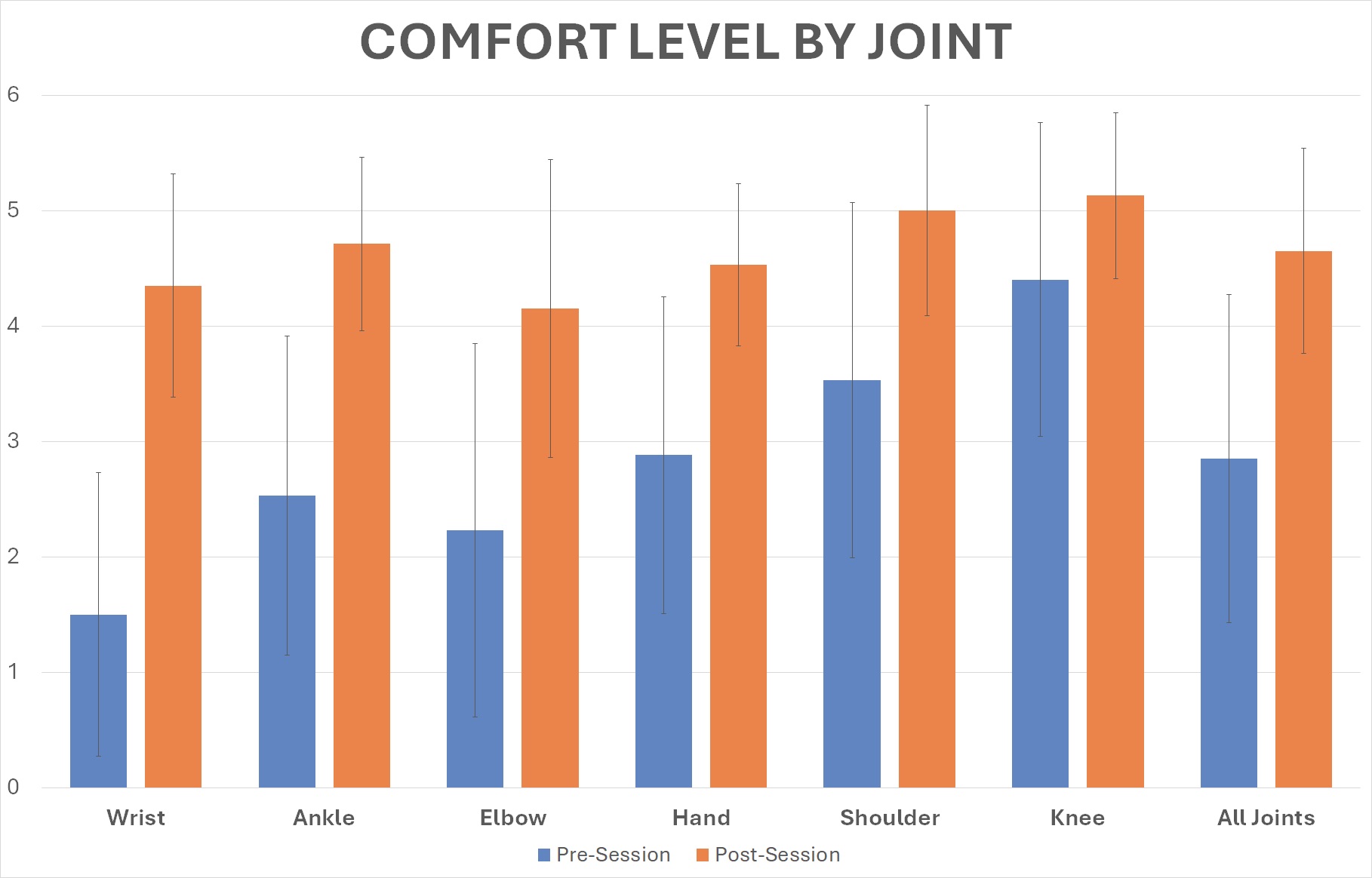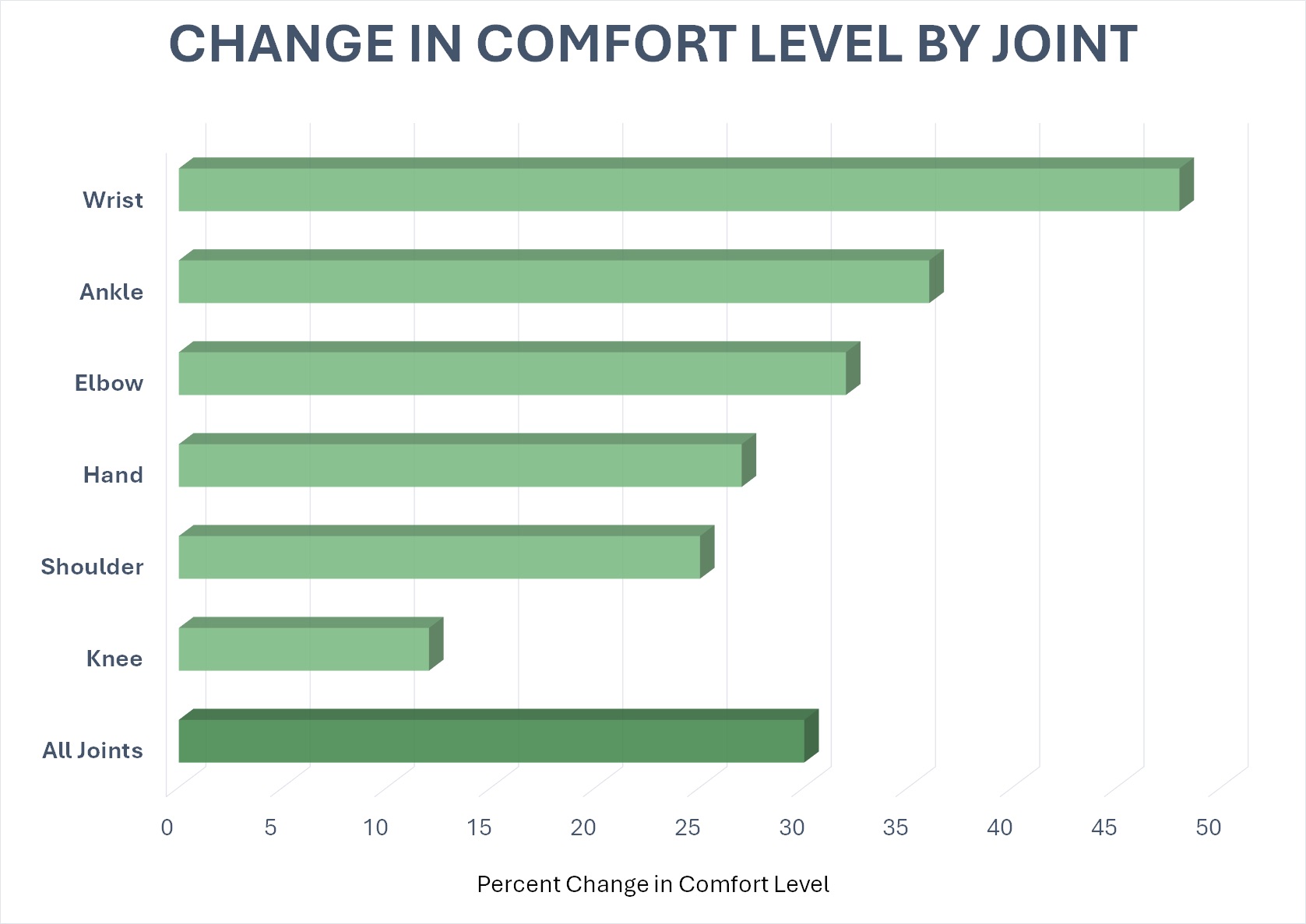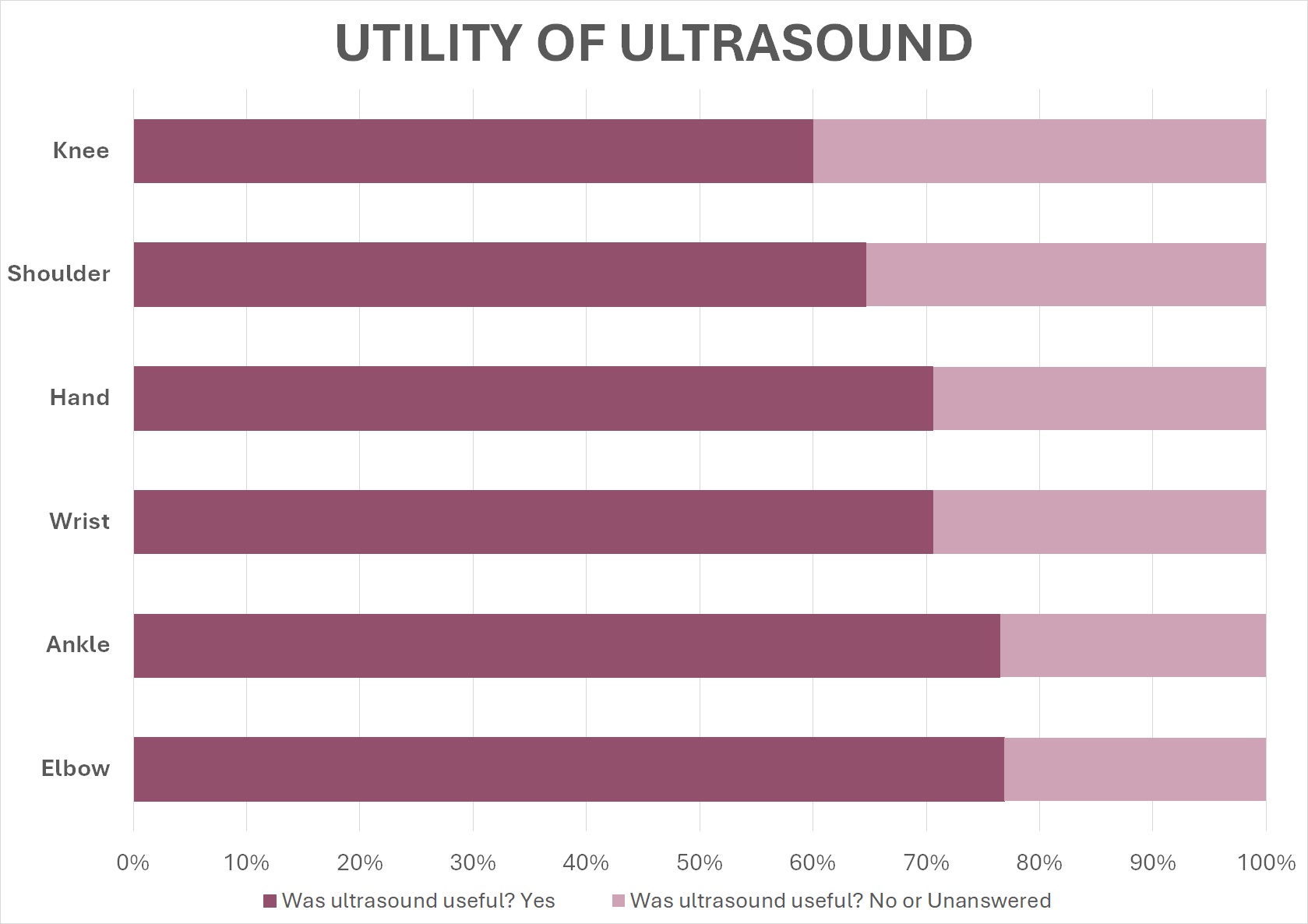Session Information
Session Type: Poster Session B
Session Time: 10:30AM-12:30PM
Background/Purpose: Understanding joint anatomy is crucial in rheumatology for identifying pathology and performing successful joint procedures. Musculoskeletal Ultrasound (MSUS) is commonly used to learn these skills, but gaining hands-on experience outside of a clinical setting remains a challenge.
The standard curriculum provided by the American College of Rheumatology (ACR) includes cadaver labs as a potential practice and assessment tool, in addition to live model scanning. Currently, there are few studies utilizing cadavers for teaching joint anatomy or joint procedures, with none looking solely at cadaver use with MSUS in rheumatology training. Per literature review, this would be a novel study evaluating ultrasound-based learning on cadavers in augmenting rheumatology trainees’ knowledge of joint anatomy and proficiency in joint procedures.
Methods: This IRB-exempted study consisted of 3-hour workshops utilizing formalin embalmed cadavers. The activity took place at the Brown University Anatomy Lab from 2021 to 2024 (with 2022 excluded due to COVID-19 pandemic). Participants included 15 fellows from three rheumatology training programs and 2 residents from a local internal medicine program supervised by Brown rheumatology faculty. Participants completed an exit survey aimed at assessing comfort level (on a 1-to-6 Likert scale) in identifying anatomy and performing joint procedures both pre- and post-workshop. Surveys encompassed six distinct joints: wrist, hand, knee, shoulder, elbow, and ankle.
Results: All six joints studied demonstrated an improvement in perceived comfort level with joint procedures after the cadaver session (Figure 1). The average comfort level score across all joints pre-anatomy session was 2.85 (on a scale of 1-to-6), and average score post-session was 4.65 (statistically significant with p = 0.0016).
After the workshop, there was significantly greater improvement noted in certain joints compared to others, with the wrist, ankle, and elbow showing the most notable enhancements (Figure 2). Most participants noted that ultrasound augmented learning of anatomy and joint procedures (Figure 3).
Not all 17 participants completed each joint station during the cadaver sessions; therefore, data were collected only from the completed portions of surveys.
Conclusion: To our knowledge, this is the first study to establish the role of cadavers in fellowship training for identifying joint anatomy and performing procedures with MSUS. Cadaver-based training markedly enhances both comfort and competence in mastering joint anatomy and performing joint procedures. This effect is particularly pronounced for complex joints such as the wrist, ankle, and elbow.
Limitations of this study are incomplete surveys and a small number of participants. Fresh frozen cadavers may also allow better joint flexibility and visualization. Further longitudinal data is needed to conclusively affirm the positive impact of integrating MSUS with cadaver training in enhancing trainees’ education.
To cite this abstract in AMA style:
Midha R, Batra N, Siddiqi M, Hadi M, Gilek-Seibert K. Cadaver Lab Improves Rheumatology Trainees’ Skills in Identifying Joint Anatomy and Performance of Joint Procedures [abstract]. Arthritis Rheumatol. 2024; 76 (suppl 9). https://acrabstracts.org/abstract/cadaver-lab-improves-rheumatology-trainees-skills-in-identifying-joint-anatomy-and-performance-of-joint-procedures/. Accessed .« Back to ACR Convergence 2024
ACR Meeting Abstracts - https://acrabstracts.org/abstract/cadaver-lab-improves-rheumatology-trainees-skills-in-identifying-joint-anatomy-and-performance-of-joint-procedures/



